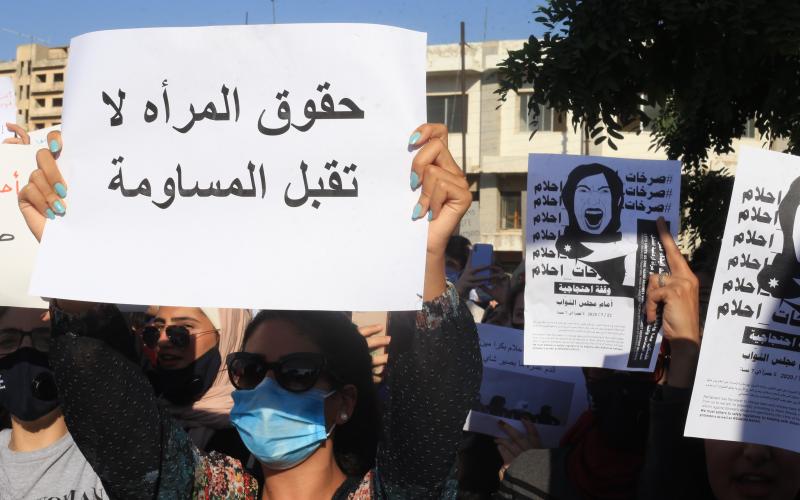By Banah Khamis
Whether collecting donations after Beirut’s explosion, organizing for protests against honor killings in Jordan, or catapulting their own movement against sexual violence in Egypt, women on social media are playing a major role in catalyzing change across the region.
Starting from Jordanian youth utilizing social media networks to organize protests against the honor killings that had been repeatedly occurring, Facebook groups were formed and Instagram templates were reposted on stories under the hashtag #صرخات_احلام. Protestors called for the Jordanian parliament to amend certain laws that may be used to protect the offenders in cases of honor killings and possibly even grant them impunity.
In Egypt, on the other hand, two collective movements against sexual harassment and assault on social media became a major instrument in giving a voice to the victims. In the Ahmed Bassam Zaki case, victims and survivors came together on social media, breaking their silence and sharing the traumatic stories of their assault in solidarity. And more recently, a popular Instagram account @assaultpolice published the story of an 18-year-old victim of gang rape. The Instagram account, now followed by 180 thousand users, has made great strides in terms of fostering solidarity for the victims and encouraging girls who have suffered such attacks to come forward.
The great surge in Egyptian women coming forward to speak out about their experience of sexual assault and violence on social networking platforms such as Instagram created a ripple effect that empowered thousands of women across the Middle East.
After Beirut’s devastating explosion on the 4th of August, people all over the world searched for ways to support the victims and assist in rebuilding the destruction. Given that Lebanon is now struggling with one of the worst economic crises in years, it was unclear how the victims would be able to sustain themselves. Lebanese-American filmmaker and activist, Jude Chehab, took on the challenge with her team and began to work with local organizations on the ground in order to support families whose homes were demolished in the explosion. Chehab took to Instagram to urge her followers to donate as well quickly after displaying how the donations were going straight towards assisting families on the ground.
Social media has played an undeniable role in mobilizing and uniting people under a cause; be it the Beirut fundraiser, the anti-harassment campaigns led by Egyptian women, or Jordanian women organizing protests calling for reforms. Women are certainly reshaping the Middle East and it’s about time.



